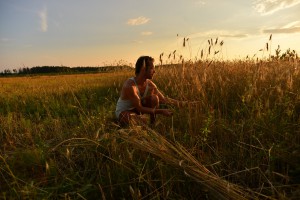
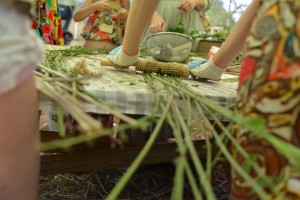 Источник — проект REALS:
Источник — проект REALS:
http://realsproject.org
The 3rd Festival of eco-technologies in Kovcheg, August 2014
Written by Alisa Sidorenko, CEMUS. Photo Anna Denisova SPbU
Early morning, still fresh and crisp before daytime heat, a group of people in the meadow is practicing special exercises, bringing themselves into harmony with nature. Relaxing and moving through the space they integrate their bodies, minds and energy fields, nurturing the inner peace and awakening the universal consciousness. Their muscles are relaxed and bodies are free to move in any direction without efforts…
Video:
Milling grain in the Ecovillage Kovcheg from Emilia Rekestad on Vimeo.
A simple flute melody is heard from the nearby forest, waking up the summer camp. The day begins, and a couple of hours later this meadow will be full of people, getting warmer and warmer from the sun and speeches. Here, under a big colorful circus tent, is the main stage of the 3rd Festival of eco-technologies, where people conscious about ecology and sustainable living have gathered to share their experiences, thoughts and knowledge. This year the festival is hosted in Russian ecovillage Kovcheg. We, Swedish part of REALS, came to the place on 8th of August late in the evening. That had been a long journey: getting to Russia, then taking 2 trains to nowhere and finishing with 2 hours of almost off-road drive. This way by midnight we came to marvelous place called Kovcheg, calm and pure in the night. Kovcheg is one of Russia’s biggest and lived-in ecovillages, it is located 140 km south-west of Moscow (do not forget 12 km of cracked concrete road and 2,5 more km of field road). It was founded in 2001 by a few Russian environmental enthusiasts and now 40 families live here permanently year-round (over 110 persons with children).
More than 90 houses and constructions have been made from the scratch, including primary school, sawmill, theater [1], [2]. Kovcheg in Russian means ark, as Noah’s Ark. The settlement consists of people who have left their cities inspired by living sustainably in strong connection with the earth and in consensus with each other; as people say, “we support progress, but we are against harming humans and nature”. The village is outstanding place and its atmosphere predetermines the Festival’s spirit. Read more about ecovillage Kovcheg]
The Festival covers 8 different scenes, some are under tents in the meadow and others are right in the forest near the village. The variety of workshops and seminars is impressive: all day long there is something going on each scene. Plentiful master-classes and group discussions covering the topics of eco-friendly technologies, education, organic farming, permaculture, energy supply, sustainable living, building and traditional crafts are held during three days of the Festival. There are continuous round tables about alternative education, ecovillages development and forest protection and restoration. Competent masters have come from other Russian ecovillages as well as from Belarus and Sweden to share their experience and lead the seminars.
Endless workshops on time-honored handicrafts fill the festival with special ambience of traditional Russian life. For instance, one can learn age-old blacksmithing, weaving yarn and nettle weaving, carving birch elm, wickerwork, building round oven “tandoor” and baking bread in it, and other long-established techniques and arts. People interested in forest nursery join seminars on forestry and plant rare and endangered species; builders are captured with master-classes about thatch roofs, timber and light adobe houses. Women learn to make detergents and cosmetics from completely natural ingredients, children are busy with crafts, somebody learns to play music instruments. Exercises and workshops on inner peace and trust, guided by Mexican guru Alberto, make the picture complete. People are eager to share their skills and knowledge about sustainable ways of living and creating, and this eagerness keeps the festival alive and fruitful. Even when the day is over, the participants are still busy having excursions to Kovcheg’s houses and gardens, visiting its amazing theater and sauna workshop, joining traditional round dances and singing around bonfire…
Sometimes during these busy days, when the sun is burning grass and tents’ roofs, you feel the need to refresh your mind, so you quietly leave down to the river — a small but cold creek, surrounded by woods. Here, among trees, you walk and observe, exploring the place and yourself. Pinewood slowly turns into mixed deciduous forest, smells fill the air and variety of living forms is magical. You see the unity of alive and dead matter all around, as new sprouts are growing from dead trees, testifying to circle of life based on ecosystems. You are fascinated with diversity of life here and clearly realize why you chose to be among people daring to put their lives in for care about the earth, saving nature’s biodiversity, establishing and maintenance of sustainable communities. But hold on, why do we actually do that?
Why people around the world, and here 140 km south-west of Moscow, come together with wish to change something in modern civilization?
Why do we want to do something?
Each morning, before the program starts, participants are gathered together under the circus tent for inspiring introduction to the day and presentations of different projects of those coming to the festival. Most of the projects are non-profit while some are more like social entrepreneurship, but all of them are dedicated to improving ecological and social situation in participating countries. On the first day, before projects presentations, the introduction word is given by Fedor Lazutin — the president of REEN, one of Kovcheg’s founders, activist of forest protection and sustainable forestry, and master of natural beekeeping. “Ecological topics are difficult, one cannot talk about them dancing around. But I will try to make the subject a bit easier”, says Fedor. “We have gathered here with idea of eco, let’s firstly decrypt what eco means. The word eco has become green-washed, therefore a lot of people, including me, had rather use the word alternative. There is the cohort of people, permanently growing in number, who want to alter the way of how things go. And there are two drivers to do so. Firstly, it is personal motivation, as the desire to fill the life with meaning, to eat good food and breathe clean air. The second drive is global. Humanity has begun to rethink those foundations that we had been taught since childhood. We had been built in the system, but now we begin to comprehend the situation. If one analyzes, the present civilization is destined to self-destruction, to destruction of the things we have currently. (We could definitely add numbers and photos to this point, but I won’t do it today, it is sort of ill-timed).
We live relying on natural resources, everything in our civilization relates to oil. But if up to 2010 oil extraction had been increasing all the time, now it starts to decrease. It happens because the amount of resources is going down and down. Meanwhile the demand is growing more and more. The same situation is with minerals, the richest deposits have been exhausted already. So, the first trend is that our civilization is all about resources, and resources are running out. The second tendency is a war. And wars happen because of resources, as developed and leading countries need resources. And another tendency, which is logically follows the previous ones, is pollution. Do you remember the experiment about growing bacteria in Petri dish? That experiment shows how bacteria put in Petri dish consumes all the nutrients added to the dish and contaminate everything with waste. And humanity today is similar to such bacteria: we consume and contaminate. For example, until recent times the amount of agricultural land had been growing, but then started to decrease. Even though more and more new fields transforms to growing crops (by the way, causing deforestation), even more land is taken out from agricultural zones as the soil becomes contaminated or affected by erosion. Again, the population and demand are growing, and amount of land is decreasing. Further, during its history, the humanity invented over 100 000 chemical substances. They are in our food, water, in the places we live in. These chemical matters affect our organisms, our children organisms, and as a result the variety of illnesses rises. The life we have now cannot last forever. In the moment of peace we think that everything is fine, but then everything is collapsed.
We, in Russia, know how it can be, as we have experienced such moments when suddenly everything is collapsed. That is all sad, but there is the positive side. For example let’s take beekeeping. It is well-known that the USA is a country of industrial beekeeping. But now the production is decreasing due to new illnesses, bees literally disappear. As a result, 30% of bees in USA die causing a big problem in beekeeping industry. Consequently the massive movement of natural beekeeping starts to grow. It is beekeeping far away from cities, without antibiotics, sugar and top-dressings with the mission to save the species and traditional beekeeping. Thus, we have got the alternative, and this movement is growing. People say “But we cannot resist such giants like Monsanto”. Yes, but we can choose to whose mill we bring grist. We cannot withstand the global tendencies, but we can work on the alternative. And perhaps this alternative that we are creating will be such attractive that it will spread as epidemy. By this moment I do not see a perfect alternative as the whole, but accumulating knowledge is in progress. Vegetarianism, raw food, alternative medicine, homebirth and so on. However, even ecovillages live in tight connection with the system, when it touches upon such questions like education or health care. Therefore the next step is improving of cooperation, this is how I see further development. And I suppose the people who take part in such development have come together here at the festival.”
Why are we here?
After Fedor Lazutin, the introduction-inspiration speech is continued by Laysan Mirzagtova, executive director of REEN, ecovillage movement activist, GEN-Europe ambassador in Russia and REALS activist. To answer the question Why do we need the festival?, Laysan draws an analogue with biological laws, because the world as she says, is built like matrix, reflecting identical laws on all levels — from biology and physics to society. She provides an example that in healthy body only 10% of cells are favorable, and only other 10% are pathogenic, bad. The rest 80% of cells are neutral, they do not belong to favorable or bad ones. When the body has strong immunity, 10% of good cells transforms into 11% as some cells have been added. When it happens, all those 80% automatically become good cells. But if pathogenic cells become 11%, those 80% become pathogenic as well.
The point is that there is always minority guiding and majority following, and the smallest difference predetermines where the majority go. Consequently, the body lives or dies. This law is applicable to society, says Laysan. “We need to overcome this 10% and then the joining population will grow automatically. For this we need to share information and knowledge and built strong network”. Another day one more example from biology was provided by Laysan and it answers the questions Why do we need to share knowledge? Why do we organize such festivals? “An alive cell’s law declares that to be healthy 20% of received energy a cell uses for itself and 80% it gives out to the system. And this is how healthy society function: 20% of personal energy should be spent on own household while 80% we share to our community; 20% of community energy goes to itself and 80% to national or global projects, etc. If we follow this natural way, our society will become healthy and content”. An example of such projects, where people donate their energy to global goals, is REALS, also represented at the festival.
REALS — our strength and weaknesses
Besides all the activities, the 3rd Festival of eco-technologies became a locale for REALS members meeting. 13 participants from Russia, Belarus and Sweden got together in Kovcheg’s “common house”, functioning usually as primary school. Sitting cozily in a circle on the floor, we spend over 6 hours discussing current stage of the project and its further development. One of the main focuses was on the Project Statements, assigned to identify REALS principles of work REALS Projects Statements. Each country made proposals on what should be changed or added to the Statements. Another important thing to discuss was analysis of REALS project in order to define its strength and weaknesses, and determine opportunities and threats (SWOT-analysis) read what is SWOT. One of the things on which all participants agreed on to be done, is translating web-page and documents to Russian and Belarusian in order to improve spreading information about the project in these countries. Another point, weakening the project, is imbalance of project coordination and need of more active participation from all countries. But despite determined weaknesses, the participants emphasize the strength of the project embodied through established strong partnership between the countries, trust among the participants, high level of knowledge, active work nationally, external interest to the project and good connection with Swedish Institute. One of interests for the project members appeared as establishing and developing relations with ECOLISE (“European umbrella for local community-led initiatives for climate change and sustainability, aiming to bring together permaculture, Transition, ecovillages and eco-municipality movements…” Read about Ecolise on REALS web-site. Good way to round out the meeting was a question addressed to everyone personally: How can I contribute to the project? Thinking about it for half a minute everyone of you can find something you can to do for REALS ![]()
Learning from the body
But for a moment let’s go back to morning meadow near Kovcheg, to group of people slowly moving their bodies through the space. The main lesson of their exercises is learning to move the body effortlessly and so be more efficient in practices. When you tense your muscles too much, you will become tired too soon — one cannot stay in highly tensed position for long. Vice versa, if you relax your body, the movements become more efficient with less tension and so the body can stay for longer. The same happens in our lives. Highly tensed resistance makes you tired quickly. To withstand opposition for long, one should do it as effortlessly as possible. Relaxing our muscles we learn how to deal with problems. Living sustainably, with connection to the earth and cooperation with people makes community life full of meaning, possible to live in harmony with nature and society without tenses and so work for its ideas for long. But the same as with body, to be able to move and resist for long without efforts, a lot of time should be spent beforehand for practices to make the body, initiative or community healthy and strong.
References [1] Ecovillage Kovcheg, official web-page, Key facts in English, available at http://www.eco-kovcheg.ru/keyfacts.html [2]Permaculture Magazine, www.permaculture.co.uk, Ecovillage living in Russia, No 63, p. 27-29, available athttp://gen-europe.org/uploads/media/pm63kovcheg_l_02.pdf

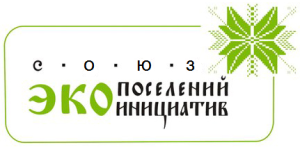
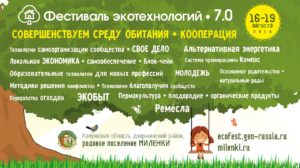
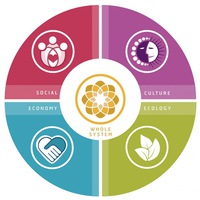
Уведомление: Invitation to the Seventh Festival of Ecotechnologies (August, 16-19, 2018. Russia) | Союз Экопоселений и Экоинициатив